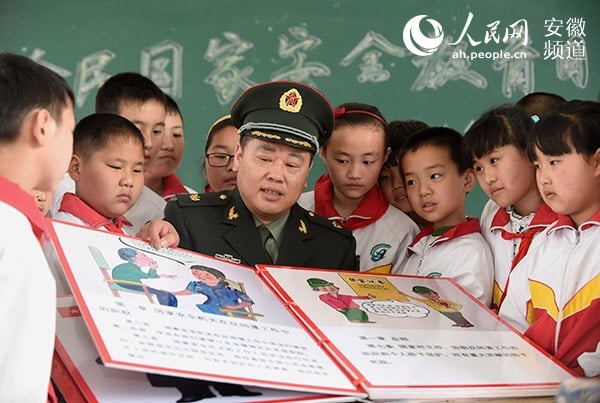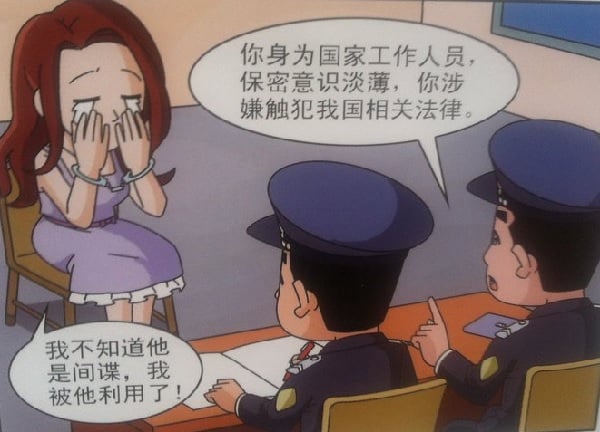
National Security Education Day in China (People’s Daily)
An increasingly paranoid China is now teaching schoolkids to be spy-catchers and warning women against dating handsome foreigners who might be agents of a hostile government.
For Americans, April 15 is Tax Day. In China for the first time this year, April 15 was National Security Education Day. It is hard to say which is more frightening. With fun-but-serious activities including games for kids such as “Spot the Spy,” National Security Education Day is part of a ongoing ideological campaign against “foreign hostile forces” by the current leadership under President Xi Jinping.
Most recently, targets of the campaign have included Chinese students and others returned from abroad, known as “sea turtles,” and foreign men in relationships with Chinese women. This fits a pattern of anti-foreign agitation observed in China since 2012, when outgoing president Hu Jintao left China with a widely-noted warning against the influence of “international hostile forces.”
This now appears to be a prelude of what was to come with the new leadership under Xi Jinping; and anti-Japanese riots spurred by the Diaoyu/Senkaku Islands dispute spilled over to include an attack on the U.S. ambassador’s car in Beijing.
China has long encouraged its students to go abroad for study and brings thousands of “foreign experts” from abroad each year to teach in Chinese universities. The foreign knowledge, skills, and technology these bring are important to the development of China’s economy.
Strangely (though perhaps not so strangely for China), Beijing is now casting suspicion on the very returned students that it encouraged to go abroad in the first place. This comes amid an ongoing campaign against “Western values” in education launched in 2015 by Xi Jinping’s minister of education, Yuan Guiren.
This is a typical behavior in Xi Jinping’s China, perhaps, but quite contradictory and even irrational given the obvious benefits to China of educational exchange with the West. Why send students abroad for study and bring foreigners to China to teach, only to then treat them like potential enemies? How can China expect to attract foreign money, gain knowledge, skills, and technology without the foreign ideas that come with them?
China seems now to be moving in the opposite direction of Deng Xiaoping’s “open-door policy,” and back toward the closed society that it was under Chairman Mao.
Accusations of spying by foreign men in relationships with Chinese women have also been noted since 2012, when a well-known talk-show host on state-run China Central Television (CCTV) launched into a tirade against “foreign trash” including “spies [who] seek out Chinese girls to mask their espionage and pretend to be tourists while compiling maps and GPS data for Japan, Korea and the West.”
Now China has launched its “Dangerous Love” campaign, including a widely-circulated propaganda poster (translated at China Law Translate) coinciding with National Security Education Day.

“Dangerous Love” (China Law Translate)
The poster consists of cartoon panels featuring a pretty but hapless Xiao Li, a government employee who meets a foreigner named David claiming to be “a visiting scholar researching issues about China.” The two begin a romantic relationship, and Xiao Li thinks, “Having a handsome, romantic and talented foreign boyfriend is pretty good.”
David sweet-talks Xiao Li into giving him internal documents from her government workplace for his “scholarly research.” David then disappears, and soon afterward officers from the State Administration of National Security come to inform Xiao Li that David is a spy and that she is under arrest for passing state secrets to him.
Xi Jingping’s anti-Western campaign has foreigners feeling a lot less welcome in China these days. The Chinese government clearly wants Western investment, knowledge, and technology, but is terrified of the spread of Western liberal ideals. This does not sound like a winning combination.